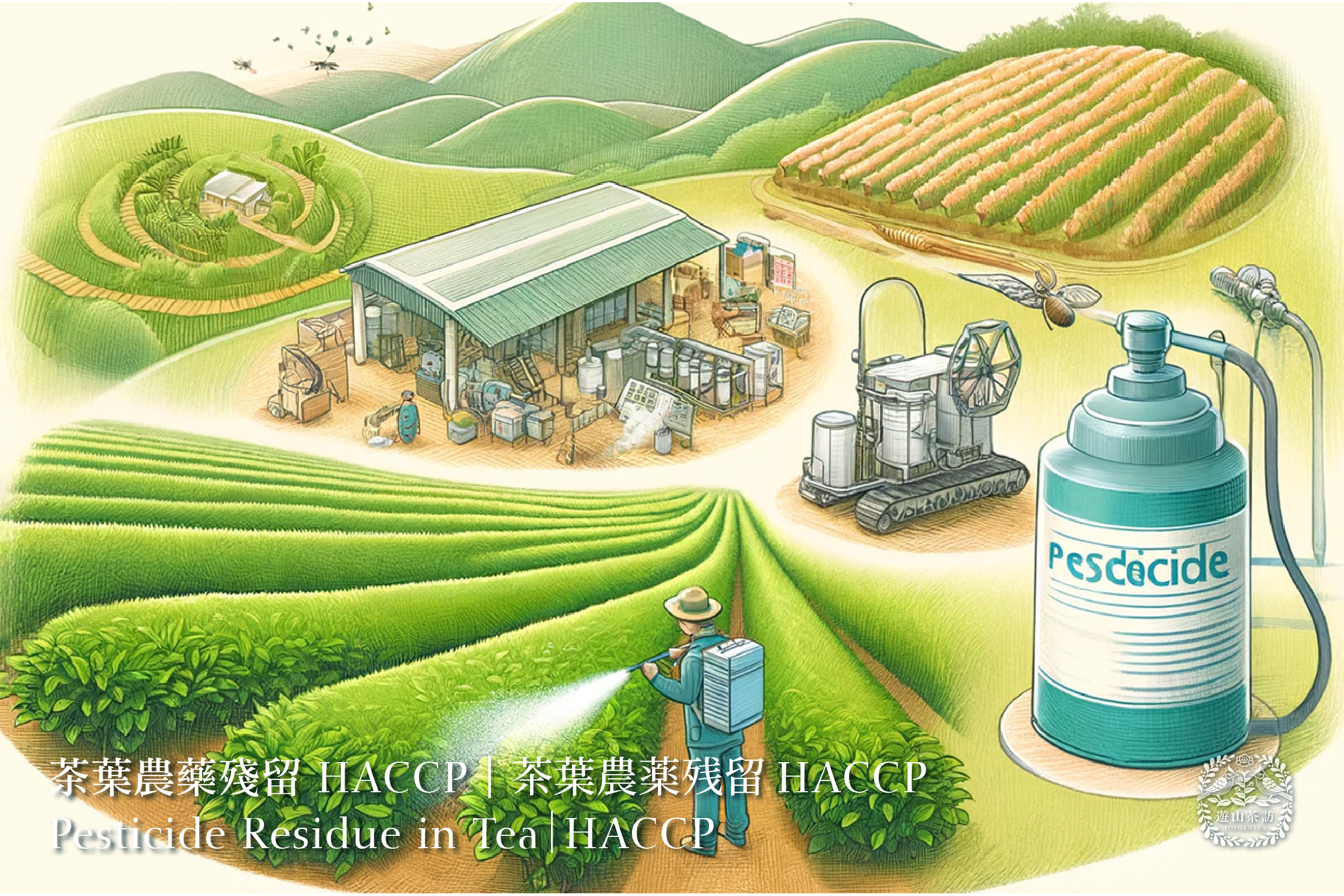Hello everyone, I'm Andy, a tea enthusiast.
It's been a while since I last shared tea knowledge with you all. In the upcoming articles, I'll take you behind the scenes of delicious Taiwanese tea to explore how "tea food safety" is maintained.
Pesticide residue in tea is a serious issue. No matter how good the tea tastes, if the pesticide residue does not comply with regulations, it is illegal. I've shared many articles on this topic before.
https://www.google.com/search?q=site%3Awww.yoshantea.com+pesticide&sca_esv=15054ed72d731ecb&sca_upv=1&sxsrf=ADLYWIJAGXv3PcdkP3eLmuhgmPIv3VFLrw%3A1717060365931&ei=DUNYZvTAOOjDvr0PxufMkA4&ved=0ahUKEwi0-6yphLWGAxXooa8BHcYzE-IQ4dUDCBA&uact=5&oq=site%3Awww.yoshantea.com+pesticide&gs_lp=Egxnd3Mtd2l6LXNlcnAiIHNpdGU6d3d3Lnlvc2hhbnRlYS5jb20gcGVzdGljaWRlSJ80UNkEWLUvcAJ4AJABAJgBnAGgAakEqgEEMTEuMbgBA8gBAPgBAZgCAKACAJgDAIgGAZIHAKAH5AQ&sclient=gws-wiz-serp
Since everyone knows that pesticide residue can cause legal issues, why do we still see related news? Here are a few reasons:
1. Adjacent Field Contamination
One of the most common reasons is that crops in adjacent fields or different harvest times result in pesticide contamination when neighboring fields use pesticides.
2. Improper Pesticide Use
The dilution ratio was not followed according to instructions, leading to excessive concentration and pesticide residue.
3. Pesticide Pipeline Contamination
The pesticide tank or pipeline was not thoroughly cleaned, leading to residue from previous batches mixing with the current pesticide.
4. Using Unknown Pesticides or Non-recommended Pesticides
When tea farmers find their current pesticides ineffective, they may look for more effective alternatives. Some may not be suitable for tea, leading to excessive residue or the use of banned substances.
5. Short Pesticide Metabolism Period
Due to labor shortages, tea leaves may be harvested before the pesticide has degraded to a safe level, causing residue.
6. Tea Production Line Contamination
Many fresh tea leaves are processed by initial processing factories. Residue on equipment can contaminate tea leaves.
7. Production Environment Contamination
An interesting case where tea was found to contain Pyrethrins, although neither the tea garden nor adjacent fields used it. The source was found to be mosquito coils in the tea factory.
8. Soil Residue
The natural degradation period of pesticides varies, ranging from weeks to years. Even after five years, residue may still be found in tea leaves.
9. Climate Impact on Metabolism
Sunlight and rainfall affect pesticide metabolism in tea plants. A dry spring once resulted in higher-than-normal residue levels, extending the "theoretical" degradation time to ensure safety.
10. Well-meaning Neighbors?
Frugality is a virtue, and some well-meaning neighbors might use leftover pesticides on neighboring fields, leading to residue.
Although excessive pesticide residue is alarming, understanding the possible causes can greatly reduce the risk of exceeding safety limits.
That's all for today. See you next time.
#yoshantea #taiwantea #dongdingtea #oolongtea #teafactory #FSSC22000 #safetea #pesticideresidue #teasafety #HACCP #teafarmmanagement
